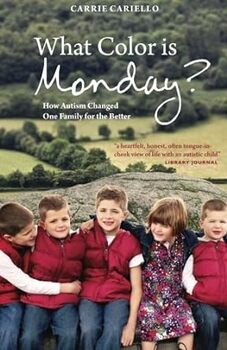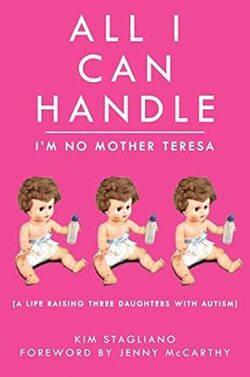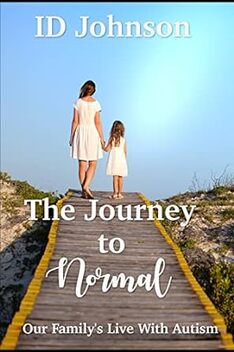What is the most concerning or destructive thing that is going on right now in your child’s world?
Speech – Revisited
My hopes are two-fold. I hope to help parents understand why certain therapists are necessary/appropriate; and secondly, how to help therapists understand parent’s expectations. So, this BLOG is touching on Speech and Speech/Language/Communication Therapy/Intervention/Programs/Services.
Luker, S. (2024) For further information on ‘echolalia’, non-verbal, and other stereotypical communication by children and adults with autism, please see under “What to do While You Wait” – BLOG #3A Motor & Communication; BLOG #4B (Speech Therapy), on my website www.sarasautismsite.com
Miles, R. (2013) 5% Our beautiful boy couldn’t talk, wouldn’t make eye contact, and was frequently inconsolable.
… I had no doubt that he was intelligent.
Cariello, C. (2015) 12% By the time Jack was sixteen months, we had a speech therapist and a special education teacher working with him weekly and we were still having him tested to figure out the source of his language delay.
< My Thoughts > “…we had a speech therapist…”
Parents often ask me… “Why spend time with a speech therapist when he doesn’t talk?” Speech therapists work on so many other forms of communication and social skills. For example, when playing a simple game, the therapist teaches ‘joint attention’ through turn-taking, waiting for the child to ‘initiate’ the next move, and to show ‘anticipation’ of what is going to happen next. To get a sense of whether or not the child can ‘predict’ what others are thinking or going to do, that will either help them or harm them.
A child with autism is usually self-centered and not connected enough to another person to ‘anticipate’ what they are going to do or say. I am tempted to say… ‘Nor do they care.’ But, those who can verbalize say they ‘do care’ they just get so overwhelmed by all the stimuli around them that it’s easier if they withdraw into themselves.
Another thing that a speech therapist does is a series of formal or informal assessments of the child’s ‘receptive & expressive’ language. ‘Receptive’ language is basically recognizing the words they hear. While ‘expressive’ language is being able to say the words they need to express themselves.
12% Even though I knew that Jack could hear someone open a bag of animal crackers from three rooms away, I fostered a tiny seed of foolish hope that maybe, just maybe, he was hearing impaired and that all of this could be solved with a simple crash course in sign language. Nope, not deaf.
Cohen, K. (2011) When Ezra is almost two years old, he still isn’t consistent with sign language and he has no words, so I think about pursuing outside opinions. I call Early Intervention first, a state program that is mandated by federal law.
“What sorts of things are you concerned about?” the coordinator asks me on the phone. “I’m not concerned,” I say. I’m aware I’m pacing as we talk. “But I know he’s supposed to have a few words by now, and I figure speech therapy could help.”
“So, he isn’t talking yet. How old is he, again?” I tell her, not wanting to. “He’s twenty-one months.” “Any other concerns?”
His poor eating. No pointing. Crying when songs end. He cries in terrible despair if someone sings one of his favorite songs.
“No,” I say. “No. Just the words.” We set a date and time, and I immediately start to dread the coming appointment. In moments, I am stricken with instinctual fear. What have I done?
7% By the time a half hour has passed, Ezra is full upset. He runs toward me, sobbing. “Mama!” he calls.
I see he says Mama, the lead evaluator says without emotion, while Ezra clings to me. She jots this into her notebook. I hold him, his small, soft body, and nod, wanting Ezra to gain this one positive mark today.
When they finally leave, I put Ezra down for his nap and then I sit on the couch and cry. I call Michael. “Why are we doing this?” he asks. “To be a good mom, I have to help him.” I have to pull myself together.
We have another evaluation coming up in just a couple months, this one with a private hospital’s rehabilitation center, which is covered by our insurance. I want Ezra to receive as much speech therapy as possible.
Early intervention warned me that their budget rarely allows for therapy more often than every other week. I haven’t yet come to know that the world will not welcome my child.
I’m handing him one cheese puff at a time, urging him to ask for more. He looks at the bag, leans toward it, says, “Mm mm mm.” finally, he does it. He presses his chubby dimpled hands together. He watches them as he does. “More!” I yell. “You signed ‘more’!” I hand him the puff and he sticks it in his mouth, unfazed.
Stagliano, K. & McCarthy, J. (2010) 10%To keep Mia from wandering out into traffic I wrapped my leg around her, twisting my body into a bizarre ballet pose. Mia had no sense of danger (common in autism), but fortunately she had only two speeds of motion, turtle and snail. This was a blessing, at the moment.
But, Gianna was not about to cooperate. I finally got her out of the car…she threw herself onto the pavement and continued to scream. She had almost no speech at the age of two and screaming was all the poor kid could do.
I approached my own meltdown…I was hungry, and food was just steps away. I didn’t own a cell phone so I couldn’t call the restaurant to ask to bring my food out to the parking lot. And, I had strict mommy rules which would not allow me to leave my girls
14% When did I first know? At ten months, Mia said her first words. “Shhhhoooo” as I put on her shoes and socks. She could recite her alphabet at twenty-three months. If we asked her to get a specific book – she would go and get it. Her receptive speech seemed intact. But she only used her words as labels.
< My Thoughts > “But she only used her words as labels.”
Zamuner, et al. (2014). During the first year of life, early words usually include use of linguistic labels to acknowledge people, objects, and events. Learning words is a complex task where children often learn labels for familiar things first, before they associate an unfamiliar word with something novel to them.
Johnson, I.D. (2014) 9% The evaluation itself was conducted by a speech pathologist and a diagnostician. They talked to me about how sweet and beautiful Sophie was, how lovely our home was, and how we were all going to have a Merry Christmas.
Then they pulled out their charts and reports.
I was waiting for them to say they were sorry but Sophie just didn’t qualify for their services.
But of course, Sophie did qualify for their services.
< My Thoughts > As a teacher and student of what’s out there, I was surprised that the professionals administered the PALS test. I just seemed to me that there would have been more appropriate assessments for the first time out with a non-verbal child. Hmmm…
Johnson, I.D, continues - 11% I still don’t know if they believed my child was really that far behind or if they understood that you cannot judge a non-verbal child’s intelligence based upon a verbal exam…
“She hasn’t developed her ability to communicate verbally.” “Yes, but why?” “Well, when she hears speech, she doesn’t understand how to process it.”
11% Despite the fact that the PALS (scores) showed that Sophie was behind in cognitive and linguistic skills, neither of the professionals mentioned during this initial evaluation that they felt that she may be autistic.
12% Let’s face it, it’s a lot easier to get along in this world if you can speak and understand verbal communication. So, why would I want my child to try to navigate in life without those basic skills?
29% Sophie did so well in kindergarten. That year, people came up to me all the time and told me how amazed they were at the progress she had made.
I was amazed too. We had our struggles but eventually, she began to answer questions, tell stories, talk about her friends, and tell me what she did that day.
30% Her speech began to become more clear, though she was still confused about the tricker parts of speech, pronouns and what-not.
She became a different child. It was that year, when Sophie was in kindergarten, that I began to realize that she was going to make it.
60% Sometimes she is so upset she can’t process.
She hears what I am saying, but can’t process. It is not easy to live in our world when you have a language processing delay.
73% Perhaps we’re approaching normal.
References:
Cariello, C. (2015). What Color is Monday? How Autism Changed One Family for the Better; eBook Edition.
Cohen, K. (2011). Seeing Ezra: A Mother’s Story of Autism, Unconditional Love, and the Meaning of Normal; eBook Edition.
Johnson, I.D. (2014). The Journey to Normal: Our Family’s Life with Autism; eBook Edition.
Luker, S. (2024); Know Autism, Know Your Child with < My Thoughts > by Sara Luker; Retrieved online from – www.sarasautismsite.com
Miles, R. (2013). 3500: An Autistic Boy’s Ten-Year Romance with Snow White; eBook Edition.
Stagliano, K. & McCarthy, J. (2010). All I Can Handle: I Am No Mother Teresa: A Life Raising Three Daughters with Autism; eBook Edition.
Note: DISCLAIMER – Autism ‘intervention’, as with the phrase ‘Early Detection / Early Intervention’, may simply mean to attempt an ‘action’, or attempt to ‘change a course’ or ‘trajectory’ of the person’s autism. Any expectation for a successful ‘change’ must have the cooperation of the participant, the parent, and/or the assigned therapist. Words such as, ‘intervention’, ‘treatment’, ‘therapy’, ‘service’, or ‘program’ imply ‘cure’, or ‘long-term’ positive effect. That is NOT my intention here, and all information is presented without intent or suggestion of status or effectiveness.
End of DAY NINE.
Note: Excerpts from the books – (13% indicates location in the Kindle version of the eBook, instead of page numbers).
Sharing of my website and BLOG Comments welcomed. Thank-you to those of you who have sent comments... much appreciated!
Regards,
Sara Luker





 RSS Feed
RSS Feed